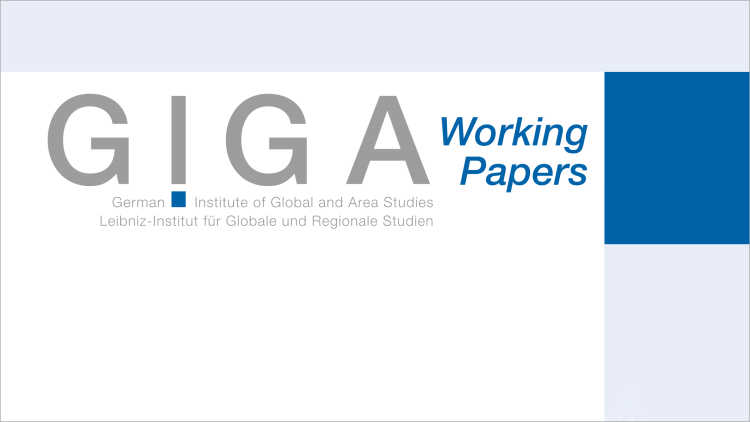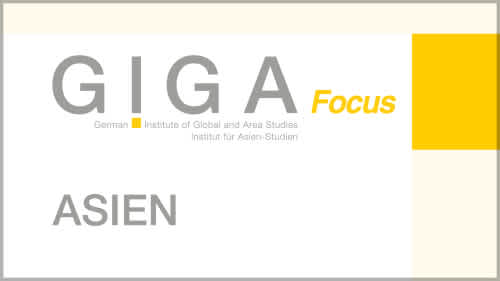- Home
- Publications
- GIGA Focus
- Die Philippinen haben gewählt: Präsident Benigno „Noynoy“ Aquino III verspricht Wandel
GIGA Focus Asia
Die Philippinen haben gewählt: Präsident Benigno „Noynoy“ Aquino III verspricht Wandel
Number 7 | 2010 | ISSN: 1862-359X
Am 1. Juli 2010 trat Benigno Simeon "Noynoy" Cojuangco Aquino III knapp zwei Monate nach den gleichzeitig durchgeführten Präsidentschafts-, Parlaments- und Lokalwahlen das Amt des Staatspräsidenten der Philippinen an.
Analyse Nach fast zehnjähriger Amtszeit Gloria Macapagal-Arroyos (2001-2010) sind wesentliche politische Institutionen des Landes geschwächt, steht die Wirtschaft am Rande des Abgrunds und greift die Armut weiter um sich. Aquino verspricht den Wandel, doch er sieht sich großen Herausforderungen gegenüber. Die Dominanz der Oligarchie ist ungebrochen. Tausende Günstlinge der alten Regierung höhlen Politik, Bürokratie, Justiz und staatliche Wirtschaftsunternehmen aus. Gelingt es Aquino nicht, einen neuen Machtkonsens zu formulieren, ist allenfalls mit symbolischen Reformen zu rechnen.
Die politische, soziale und wirtschaftliche Lage der Philippinen hatte sich unter Präsidentin Arroyo deutlich verschlechtert. In ihrer Legitimität geschwächt, hatte sich Arroyo ihr politisches Überleben erkauft. Das System der Gewaltenteilung ist nunmehr unterminiert, das Ausmaß an Klientelismus, Patronage und Korruption hat neue Dimensionen angenommen.
Die Präsidentschaftswahl in diesem Jahr ist nur im historischen Kontext zu verstehen. Aquino wurde gewählt, weil viele Wähler von seiner Amtsvorgängerin Arroyo enttäuscht waren und seine Eltern eine große Bedeutung für die demokratische Entwicklung der Philippinen hatten.
Präsident Aquino verfügt weder im Senat noch im Repräsentantenhaus über eine gesicherte und stabile Mehrheit. Die geringe Institutionalisierung der Parteien erlaubt Abgeordneten spontane Parteiübertritte nach Wahlen oder in Zeiten der Krise.
In der Vergangenheit hat sich immer wieder gezeigt, dass Präsidenten, die zunächst als große Hoffnungsträger galten, das Volk bitter enttäuschten. Die Chancen einer Wiederholung sind wegen der strukturellen Probleme hoch.
Footnotes
Regional Institutes
Research Programmes
How to cite this article
Korte, Nina (2010), Die Philippinen haben gewählt: Präsident Benigno „Noynoy“ Aquino III verspricht Wandel, GIGA Focus Asia, 7, Hamburg: German Institute for Global and Area Studies (GIGA), http://nbn-resolving.de/urn:nbn:de:0168-ssoar-275596
Imprint
The GIGA Focus is an Open Access publication and can be read on the Internet and downloaded free of charge at www.giga-hamburg.de/en/publications/giga-focus. According to the conditions of the Creative-Commons license Attribution-No Derivative Works 3.0, this publication may be freely duplicated, circulated, and made accessible to the public. The particular conditions include the correct indication of the initial publication as GIGA Focus and no changes in or abbreviation of texts.
The German Institute for Global and Area Studies (GIGA) – Leibniz-Institut für Globale und Regionale Studien in Hamburg publishes the Focus series on Africa, Asia, Latin America, the Middle East and global issues. The GIGA Focus is edited and published by the GIGA. The views and opinions expressed are solely those of the authors and do not necessarily reflect those of the institute. Authors alone are responsible for the content of their articles. GIGA and the authors cannot be held liable for any errors and omissions, or for any consequences arising from the use of the information provided.



